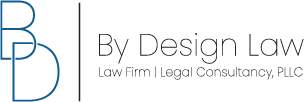Address
800 5th Ave, Ste 101-800
Seattle, WA 98104-3102
Contact
info@bydesignlaw.com
T: 206-593-1519 F: 206-649-1626
Predatory lending isn't just unethical — it's illegal.
As trusted consumer protection attorneys in Seattle, we’ve helped countless clients recoup their losses and find justice. If you suffered losses caused by a big company’s deceptive or unscrupulous practices, you have legal recourse. Connect with us online to learn more.
If you’re like most people, buying a car or home with cash isn’t an option. Before making one of life’s big purchases, you have to secure financing—typically through a bank loan. While the terms of your loan depend on various factors, you trust that whatever loan you’ve been approved for is reasonable for your financial situation. Unfortunately, that’s not always the case.
The reality is that some lenders engage in unethical and, sometimes, illegal strategies to coerce borrowers into accepting unjust loan terms. While the lender rakes in on their slanted loans, borrowers can suffer tremendously. Perhaps most harmful, predatory lending typically targets vulnerable populations, such as low-income individuals, borrowers with bad credit histories, and people with limited financial literacy.
If you’ve suffered losses as a result of predatory lending practices in Seattle—or just want to learn what to look out for—keep reading. This article will explore the nature of predatory lending practices in Seattle, including key components of predatory lending, legal protections for Washington consumers, and how a legal professional can help you pursue compensation.
Key Elements of Predatory Lending Practices
Predatory lenders don’t wear a sign announcing their bad intentions; in some instances, they’re indistinguishable from other lenders. Recognizing a shady lender may require some investigation on your part, but it’s more than doable when you understand the key elements of predatory lending. Here are a few common components of predatory lending practices:
- Excessive fees that are disproportionate to the loan amount or much higher than those offered by other lenders
- Interest rates that are significantly higher than those offered by mainstream institutions
- Loan flipping, the practice of encouraging borrowers to repeatedly refinance their loans without good reason, increasing their overall debt load
- Requiring balloon payments, lump sum payments due at the end of the loan term
- Equity stripping, loaning based on the equity in a borrower’s home rather than on their ability to repay it
- Hidden terms, including prepayment penalties or balloon payments, that are not clearly disclosed or explained to the borrower
- Negative authorization, structuring a loan so that monthly payments aren’t enough to cover the interest cost, causing the loan balance to increase over time
- Loan packing, adding superfluous services or products to the loan, like credit insurance, without the borrower’s informed consent
- Targeting vulnerable clients with aggressive marketing aimed at individuals who are less likely to qualify for traditional loans.
Predatory lending practices hurt individuals of all kinds, but they are especially devastating to certain groups of people, including elderly borrowers, low-income earners, and people with poor credit histories. Luckily, consumers affected by unscrupulous lenders have legal recourse.
Legal Protections for Seattle Consumers
If you’re the victim of a predatory lender, it’s important to know that you have legal options. Numerous federal and state laws exist to protect consumers from exploitative lending practices and offer avenues for recourse.
Some of the main
federal protections are as follows:
- Truth in Lending Act (TILA). TILA requires lenders to give borrowers clear, concise information about their loan terms, including the annual percentage rate (APR), loan term, total costs, and more.
- Dodd-Frank Wall Street Reform and Consumer Protection Act. In addition to establishing the Consumer Financial Protection Bureau (CFPB) and other key provisions, this act explicitly prohibits deceptive, abusive acts in consumer finance, giving the CFPB the right to enforce and regulate protections against predatory lending.
- Home Ownership and Equity Protection Act (HOEPA). A critical amendment to TILA, HOEPA requires lenders to provide additional disclosures for high-cost loans, including some types of home equity loans, refinances, and mortgages.
Just because these laws exist does not mean that consumers are necessarily safe from predatory lending. However, they do provide a legal framework for addressing and regulating these practices, further enforced by
Washington State laws:
- Washington Consumer Loan Act (CLA). The CLA requires licenses for Washington lenders, sets standards for the origination of consumer loans, and establishes guidelines for servicing those loans, providing Washington residents with key protections against predatory lending practices.
- Washington Mortgage Broker Practices Act. This act requires lenders to make specific disclosures to borrowers, prohibits certain deceptive practices, and sets standards for advertising and fee structures to promote fairness and transparency in brokerage services.
Additionally, several federal and state anti-discrimination laws protect consumers from discriminatory lending practices based on race, color, religion, sex, marital status, sexual orientation, age, and more.
Legal Protections for Consumers
If you’ve been taken advantage of by a predatory lender, there are several steps you can take to protect yourself from further exploitation. Depending on the specific details of your situation, you may consider doing the following:
- Filing a complaint. If you’re the victim of predatory lending, you can file a complaint with the Washington State Department of Financial Institutions (DFI), the Consumer Financial Protection Bureau (CDPB), or the Federal Trade Commission (FTC) to hold the lender accountable.
- Loan counseling. Many nonprofit organizations and counseling services offer guidance to consumers who are struggling with predatory loans and offer advice on how to spot and avoid predatory lending in the future.
- Seeking legal advice. Although filing complaints and speaking with a loan counselor are helpful in various ways, they don’t always offer a path for legal recourse. The best way for consumers to seek compensation for a predatory lending situation is to work with an experienced consumer protection lawyer.
If you are the victim of predatory lending, you may be saddled with a loan you have no hope of paying back. However, the situation may not be as hopeless as you think. A legal professional can review the details of your case and offer legal advice for the best way to move forward, which may include pursuing litigation against your lender.
By Design Law: Trusted Consumer Protection Attorneys in Seattle
Predatory lending has widespread negative impacts on Washington consumers and society as a whole. Fortunately, borrowers who’ve fallen victim to deceptive loan practices have legal recourse and may be eligible to pursue compensation through a lawsuit. Ready to explore your options? Contact By Design Law to schedule a consultation with a top-tier consumer protection attorney today.
T: 206-593-1519 | F: 206-649-1626
Copyright © 2024. By Design Law Firm & Legal Consultancy, PLLC. All Rights Reserved. Designed by JLT Web Solutions.





